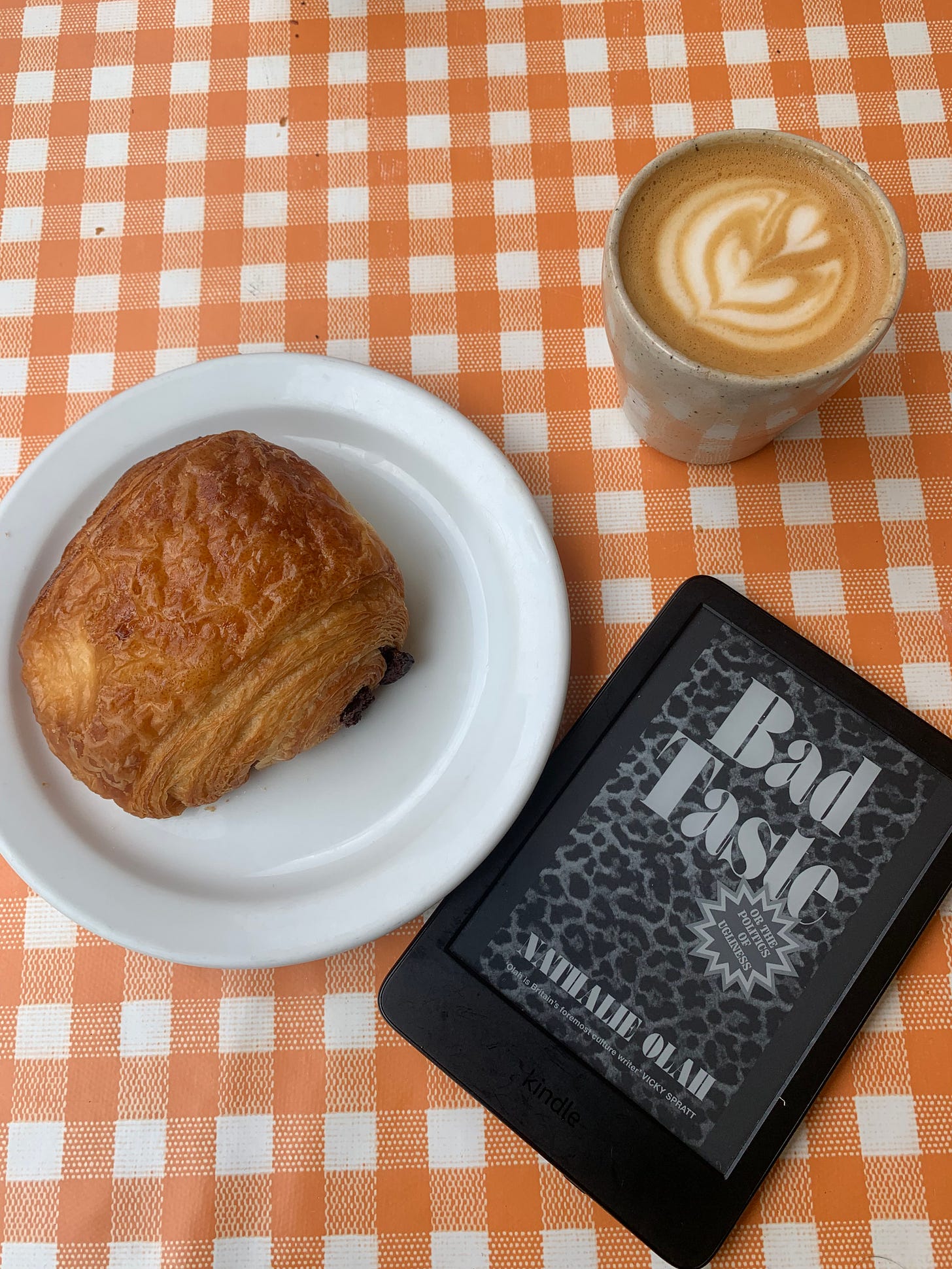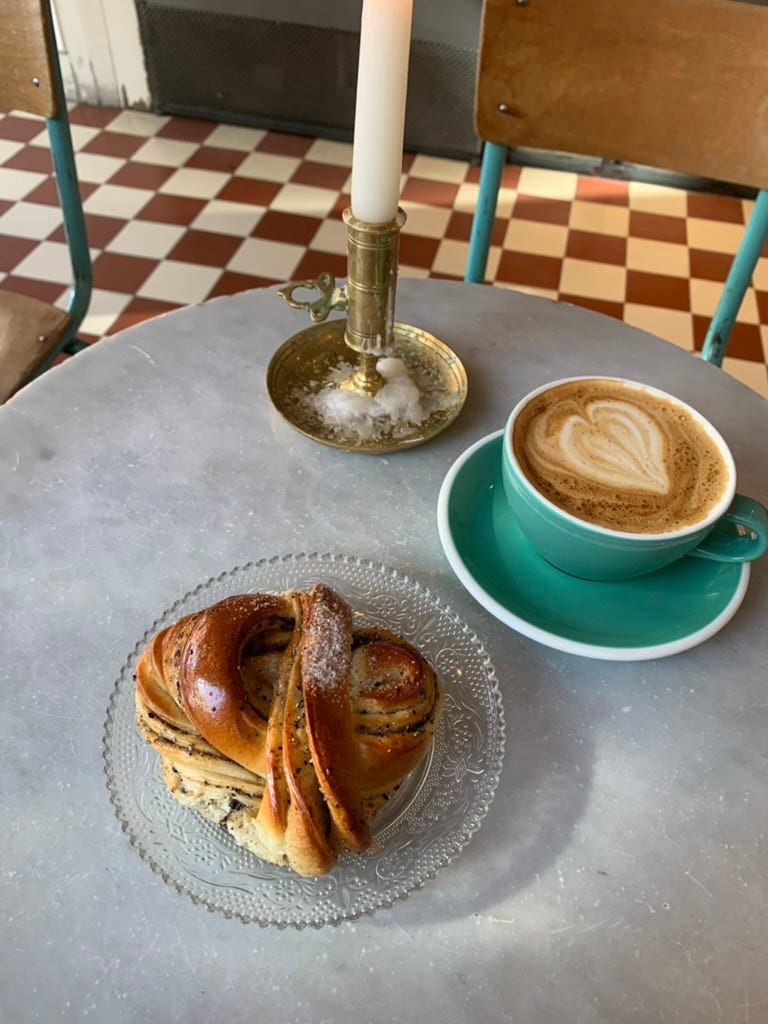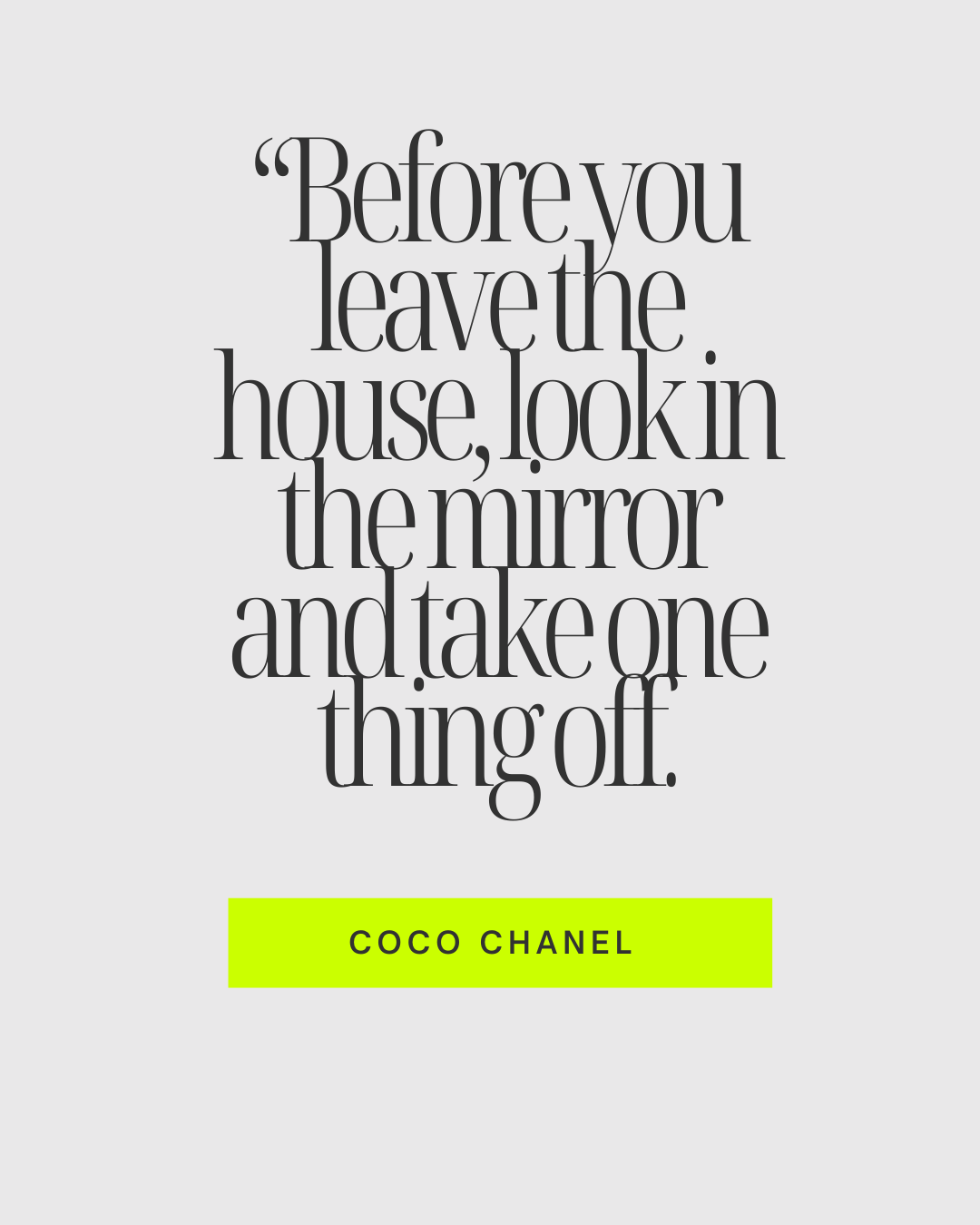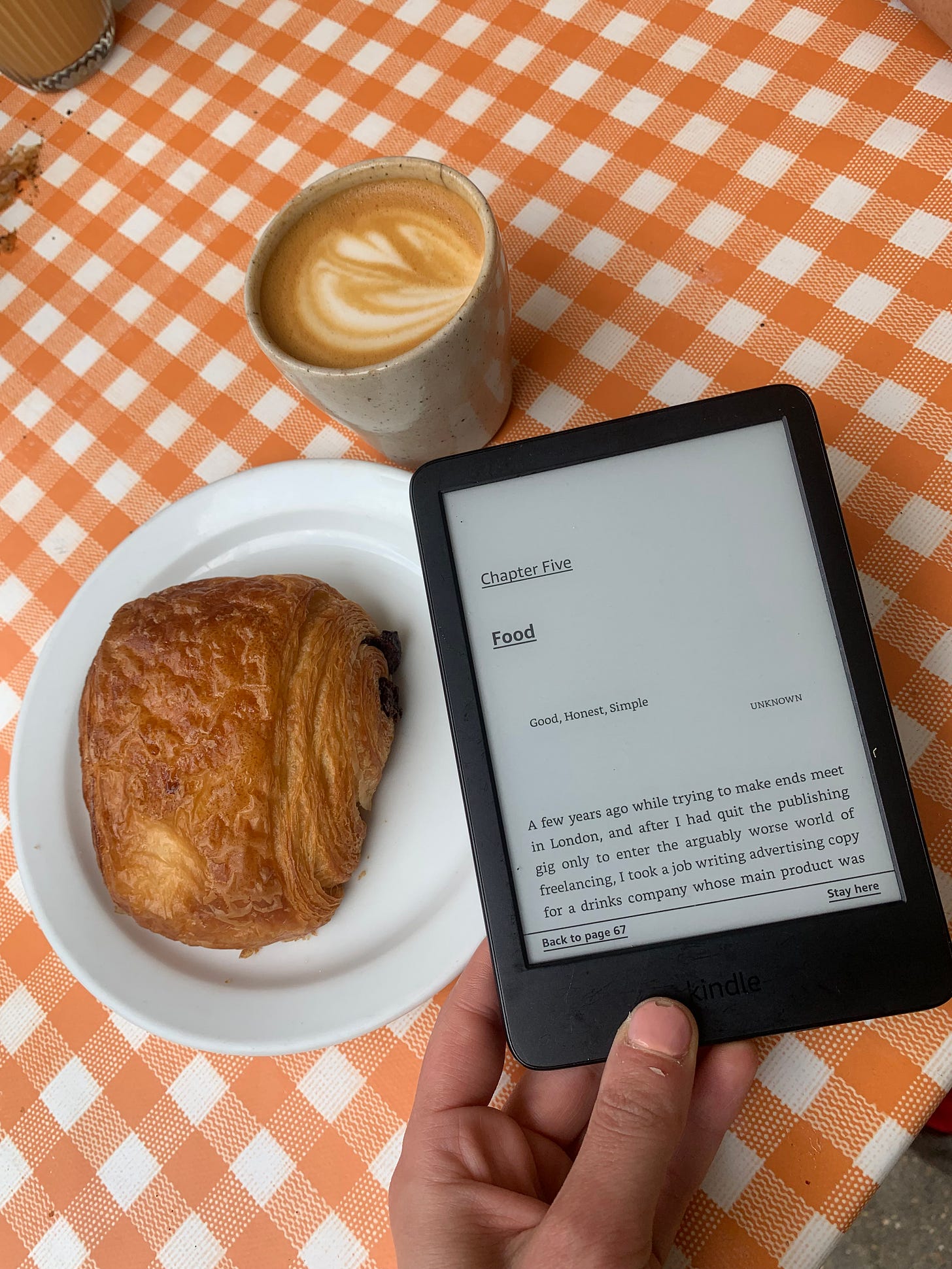Next events…
🍃 The countdown to Content Rising continues! I will be part of a packed roster of environment and climate creatives at Kew’s Wakehurst in Sussex on Thursday, 12 June. My talk is called Human Decentred Design. Tickets are available with a 10% discount using my code MICHAEL10 — so book your ticket now! 🍃
⚡ I will also speak at The Spaces Between, a two-day creative festival by Where Are The Black Designers? The event takes place on Saturday 30 and Sunday 31 August at EartH in Dalston, London. I will be speaking on Saturday. I am so excited to be part of this. I first got involved with WATBD online during the pandemic and have since found friends, mutual support, and inspiration. There will be talks, creative workshops, an after-hours club, jazz nights, and quiet places to recharge during the day. Tickets are available for the Full Weekend, Day 1, or Day 2. Follow WATBD on Instagram or LinkedIn for all new announcements. 🖤
First & Fifteenth meets For Starters
Introducing Michaella Parkes! ✨
We met at one of the first unofficial Substack London meetups. There were six of us in an upstairs room of a Shoreditch pub on a cold January night in 2024. We sat in a circle and nervously introduced ourselves and our fledgling newsletters. Since then, I have grown to be a fan of Michaella’s writing — Recharging remains one of my favourite observational posts she has written. Her motivation to co-produce and co-write RE-PRODUCTION last year — an ensemble theatre show about reproductive rights — testifies to her campaigning spirit.
Michaella and I often ping each other to celebrate mutual successes and trade ideas. We had both read and enjoyed Nathalie Olah’s Bad Taste, so we thought why not write a simultaneous book review? Actually (one better), why not publish our reviews in each other’s newsletter! 🤯
So this is what you have in your hands today. My review is over on Michaella’s newsletter For Starters. While you are there, read some of her other work. Her newsletter’s weekly roundup Add to List is a Sunday highlight for me. I’m confident you will take one look at For Starters and Add It To Your List too!
Bad Taste: or, the politics of ugliness by Nathalie Olah
Guest review written by
I sit writing this book review in a bakery where they’ve purposely left the air vents exposed. The decor is muted orange. Stainless steel meets warm wood, and here I am — gauche gingham tablecloth grazing my knees as I peer through a sash window into the terracotta pizza oven, sipping my overpriced coffee. The staff wear neutral coloured aprons stitched with leather akin to some wannabe 1920s bootlegger. To be honest, their haircut (or lack thereof) looks much the same. The pain au chocolat is heavenly — the people near me in their low-rise jeans and mullets state it slaps. I look at them and feel cool by proximity. Sitting here, I am a woman of good taste.
TASTE-MAKING
Taste — in the literal sense — is something I somehow make a living from: I review restaurants and I tell the backstories of how many chefs’ menus came to be. Prior to that, the corporate jargon of ‘taste-maker’ was liberally circulated in strategy documents I wrote as I curated book lists and reading programs for a large online book retailer.
Magazines thrive on the idea of ‘What’s Hot’ and ‘What’s Not’ lists; you only need to look as far as the brilliant Jesse ‘best restaurant in London’ Burgess from Top Jaw to see that there is a hunger for curated recommendations in the company of 811,000 other eager followers (and an Apple TV deal to boot).
Through food, interiors, fashion and beauty, there are whole industries dedicated to cutting the mustard and separating the on-trend wheat from its overstated chaff. Somehow, I find myself continually drawn to the notion of not being ahead, but always perched on the steepest gradient of the curve. Is it because it makes me feel important, knowledgeable, or part of an elite? Well, maybe some of these (even though I’d never admit it consciously). Humble? Definitely not. I think, mostly, it’s because I’m fascinated — not by what the zeitgeist is, but why it continues to exist. I enjoy the tribal nature of observing my fellow humans. I luxuriate in diving into our fragile neuroses.
THIS IS NOT A MANUAL
Bad Taste is a humorous, yet at times, brutal commentary on this state of affairs, written by
. Bad Taste will not tell you how to acquire good taste, nor will it elucidate what constitutes bad taste. Oh no, this is a fully-fledged interrogation; an anatomical deconstruction of the rigid hierarchies that uphold our age-old social insecurities. Olah explains her “almost bound duty” to explain her findings:“… [Bad Taste] is a book that considers the emerging industries of taste and the sticky and unsettling ways in which a fixation with taste impacts our lives, written by someone who has often felt the harsh judgement of others with respect to what she liked and did not like. I believe that fear of judgement is a condition of working-class life created through a necessity of survival, and that much of the pop psychology regarding confident fails to acknowledge that being impervious to the judgement of other people is a luxury of knowing that you are not dependent on it for survival.”
By interrogating our semantics of taste and culture, Olah astutely dissects our habits with keen anthropological interest. From The Modern House to your local microbrewery, Olah makes us more embarrassed about our self-aggrandising habits — like that overdressed person who turns up for brunch at Soho House when everyone else sports a hoodie. Oh, by the way: hoodies and Soho House get some serious airtime too. Olah inspects our homes, our fashion, our beauty habits, our work, and even the ways in which we spend our free time (eating small plates, obviously) as markers for what she calls “new economic entities.”
IT’S US, HI, WE’RE THE PROBLEM, IT’S US
There is inevitably a point in Bad Taste where we feel the book challenging us directly. Have you ever decided to declutter your house in the spirit of Marie Kondo, to spark joy? Have you lived by Coco Chanel’s direction to get dressed, ‘look in the mirror and take one thing off.’ I am guilty of both. The latter is something I remember being told by a friend well over a decade ago as I got ready for my first house party. And merely a few weeks ago, I repeated the mistake as I got ready for a first date. He was French. He also complimented my style (mais oui!) – I am glad I heeded dear Coco’s advice, actually.
Bad Taste will peel back the layers of your seven-step skin routine and look at the way you agonise over the exact fit of an exorbitantly priced T-shirt. The highlight for me in this book? An entire chapter dedicated to food. Naturally, I read it three times. Olah illustrates the real reasons your overpriced batch-roasted coffee habit should spike your adrenaline: “One foodstuff, which has almost become an emblem of intergenerational conflict, is coffee.” This generational transition from instant coffee, created in haste for toiling nine-to-fivers, to the digital nomad sipping a single-origin bean roasted in-house with a care only those with the luxury and abundance of time can afford:
“For many it is not a limitation in being able to afford the fresh, organic ground coffee, or other groceries which make a fresh meal, but the free time, energy and self esteem with which to engage in its method of preparation.
Olah will confront your fixation on low GI, gluten-based products. I’m talking about that sourdough bakery boom — documenting our move from the “faceless machinery of the modern food industry, and into the hands of dedicated craftspeople”. There is a yearning for old-fashioned methodologies which predate our current convenience-driven lives. There is a pining for simple pleasure which now symbolises our hopes and dreams. Olah remarks that: “Nostalgia is also hard-baked (!) into the sourdough mythos”. Genius.
After all of this, if you need further convincing to read this book, it’s this: “Princess Diana and Rihanna might be very different in terms of their background and life experiences, but the role they occupy in the public imagination is in many ways comparable.” Yep, Lady Di and Riri. When a book mixes this level of intellect with juxtaposed against pop culture familiarity in its first half, you know it’s going to be an absolute banger of a read.
Thankfully, I don’t have a Soho House membership, so I have been saved from having my insecurities mercilessly exposed in some parts, but I am not immune from other neuroses being acutely addressed by this book. Everyone, to some extent, will be probed — there’s even a section on ”dating icks online” (Hinge girlies — she’s got you).
SO, WHAT TASTE DOES THIS LEAVE IN MY MOUTH?
Bad Taste isn’t a manifesto or a call-to-action. It’s a real-time polemic narrative documenting the cultural history we are making today. We are all a part of it. By reading this review on this new-age content platform, you are part of the next chapter of creative-come-status driven work. This book isn’t about some big person changing history, it’s about us all following our herd à la mode mentality to move to the next little easily-influenced thing. We are fundamentally defined by our class system and status anxiety.
Olah argues that this outlook for a taste-led aesthetic is deeper than a simple fashion choice. She writes: “I came to understand how ideas of taste might be connected to wealth and power, forming one of the more emotional, and socially ostracising, dimensions of the class system in which we live.”
As someone who left my corporate job, I too, am a by-product of the post-pandemic Great Resignation. In the second chapter about Homes, Olah addresses creative careers (in a section subtitled “Grey Matter”) – it definitely got my neurological graphs moving. Her astute questions around the kind of humans we hope to be left me existentially pondering our purpose, our class system, and what it means to be ‘of good taste’: “What we were witnessing then, in the dark wainscoting of Soho House, and the timber work of every grain store and independent brewery was… the hope of many in being able to defy the imperatives of the market economy and combine the prestige of the auteur with the pay grade of a chartered surveyor.” She goes on to describe “The new yuppie no longer thought of himself as a corporate type in a suit and tie. Instead, he enjoyed wealth, while maintaining the delusion of his moral and creative integrity. His bank balance might resemble the trader of yesteryear, but his clothes would be far closer to that of a beatnik.”
And so, that leads me back to this bakery, where I am currently spending over ten pounds for my flat white and this pastry, surrounded by Gen-Z creatives. This kind of low-key, high-end unkempt digital nomadism gathering for their overpriced ‘treat-yourself’ moments is a result of something that Olah refers to intelligently as “normcore”. She describes how an over-dependence on the internet and digital technology results in the “creation of a new breed of capitalist in tracksuits, trainers, snapbacks and over-sized t-shirts, a cartoonish rendering of the bedroom teenager, commanding a salary in some cases of several millions a year.” We’ve all met them. Heck, I may have been one. Perhaps I am now becoming one?
Bad Taste reminded me of a great line from the play, The History Boys. Set in a school in the north of England during the 1980s, the play poses searching questions about education and knowledge. Do we continue in our pursuits of facts merely to pass tests and win power, or is there something to be done for doing’s sake? Where is the line between knowledge and experience?
“Art wins in the end,” says History Boys’ Lockwood. Yet, thanks to Olah’s wisdom, I am left thinking that perhaps knowledge and art are now the same thing. Creativity has been reduced to a capitalist commodity. Less is more – but less is also more money, and absolutely, definitely, utterly contrived.
So I urge you, read Bad Taste and reflect a little deeper on the “how” of how we got here. Consider where we will be going. Bad Taste has been revelatory. I feel as if I’ve come to understand a present reading of our future history. I am questioning why I make a living from the curation and my appreciation of taste. Is my need to define my choices driven by an internalised fear of judgement? Do I have something to prove? Am I concealing a secret desire to socially climb higher?
I think about these questions as I glance up, and the sun hits my laptop screen. I see my reflection. Jewellery, twinkling; eyes obscured by sunglasses. Dear Coco’s words jump into my mind. I wonder if I should take these earrings off? I’m worried they might be one item too many…
Bad Taste: Or the Politics of Ugliness by Nathalie Olah (Dialogue Books, 2023, 240 pages)










Thank you for this close reading! I really enjoyed reading it.
Really enjoyed this review swap!